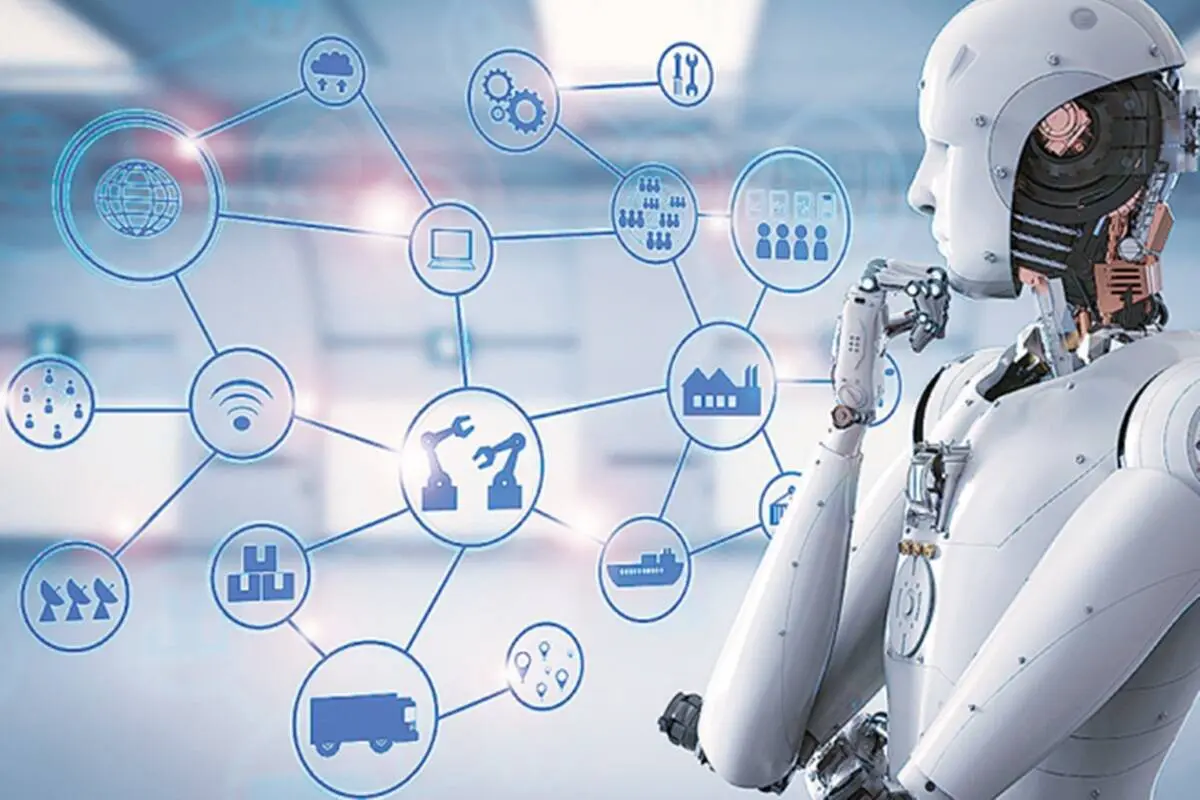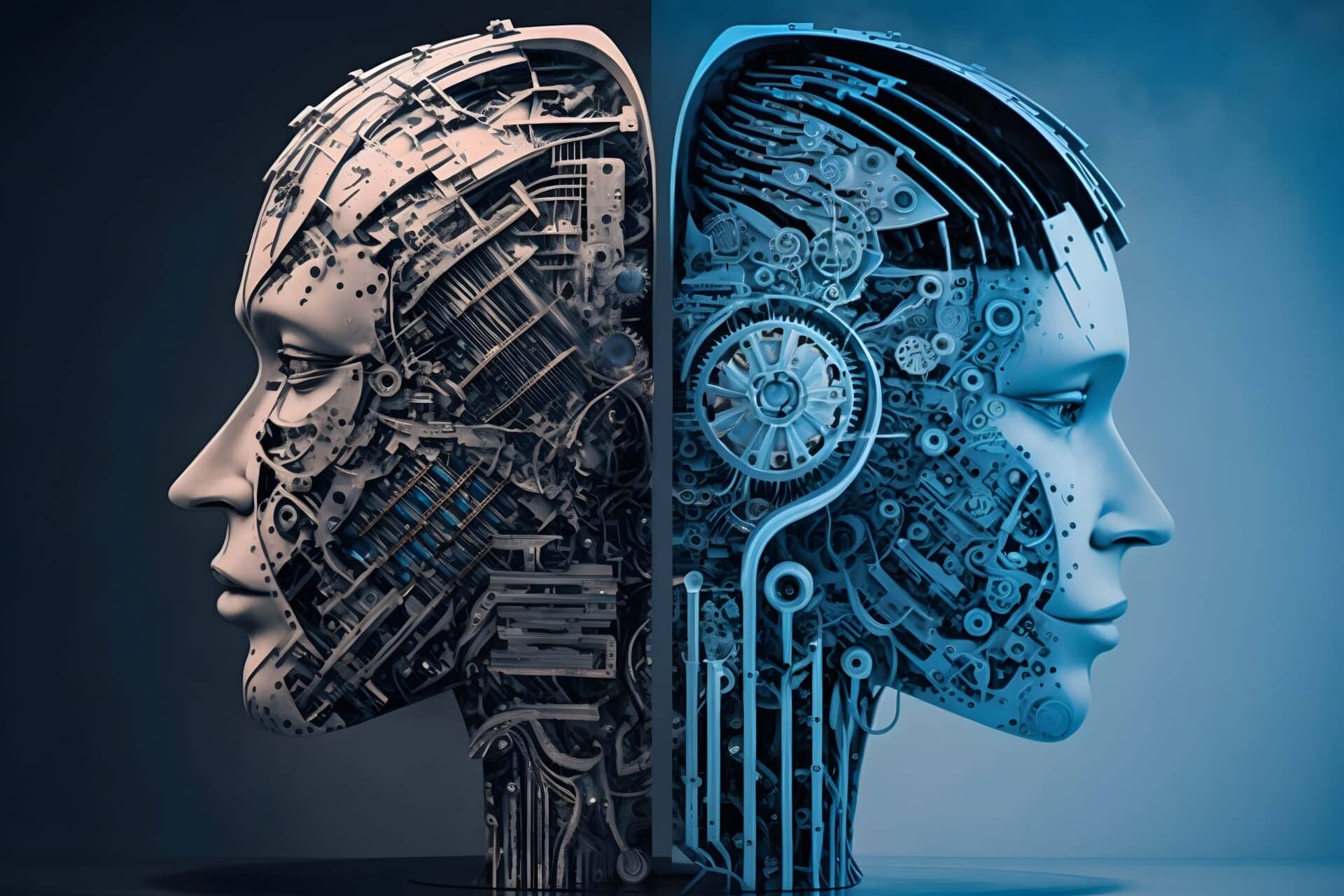Artificial intelligence is the simulation of human intelligence processes by machines, especially computer systems. Specific applications of AI include expert systems, natural language processing, speech recognition and machine vision.
How Does Ai Work?
As the buzz around AI has accelerated, vendors have been scrambling to promote how their products and services use it. Often, what they refer to as AI is merely a component of the technology, such as machine learning. AI requires a foundation of specialized hardware and software for writing and training machine learning algorithms. No single programming language is synonymous with AI, but Python, R, Java, C++ and Julia have features popular with AI developers.
In general, AI systems operate by assimilating large quantities of labeled training data, analyzing the data for correlations and patterns, and using these patterns to make predictions about future states. In this way, a chatbot that is fed examples of text can learn to generate genuine exchanges with people, or an image recognition tool can learn to identify and describe objects in images by reviewing millions of examples. New, swiftly increasing generative AI techniques can create convincing text, images, music and other media.
Ai Programming Focuses On Cognitive Abilities That Include The Following:
-
Learning. This aspect of AI programming focuses on acquiring data and creating principles for how to transform it into actionable information. The principles, which are called algorithms, provide computational devices with step-by-step instructions for how to complete a specific mission.
-
Reasoning. This aspect of AI programming focuses on choosing the correct algorithm to attain a desired outcome.
-
Self-correction. This aspect of AI programming is designed to perpetually fine-tune algorithms and ensure they provide the most accurate results possible.
-
Creativity. This aspect of AI employs neural networks, rules-based systems, statistical methods and other AI techniques to generate new imagery, new text, new audio and new ideas.
Why Is Artificial Intelligence Important?

-
AI is essential for its potential to change how we live, work and enjoy. It has been effectively used in business to automate duties done by humans, including customer service work, lead generation, fraud detection and quality control. In a number of areas, AI can perform duties much better than humans. Particularly when it comes to repetitive, detail-oriented tasks, such as analyzing large numbers of legal documents to ensure pertinent fields are filled in correctly, AI tools often complete duties swiftly and with relatively few errors. Because of the enormous data sets it can process, AI can also give enterprises insights into their operations they might not have been aware of. The swiftly expanding population of generative AI tools will be essential in disciplines spanning from education and marketing to product design.
-
Indeed, advances in AI techniques have not only helped fuel an explosion in efficiency, but opened the door to entirely new business opportunities for some larger enterprises. Prior to the current surge of AI, it would have been impossible to envision using computer software to connect passengers to vehicles, but Uber has become a Fortune 500 company by doing just that.
-
AI has become central to many of today's largest and most successful companies, including Alphabet, Apple, Microsoft and Meta, where AI technologies are used to enhance operations and outpace competitors. At Alphabet subsidiary Google, for example, AI is central to its search engine, Waymo's self-driving vehicles and Google Brain, which devised the transformer neural network architecture that underpins the recent advancements in natural language processing.
What Are The Advantages And Disadvantages Of Artificial Intelligence?
Artificial neural networks and deep learning AI technologies are rapidly evolving, primarily because AI can process large quantities of data much quicker and make predictions more accurately than humanly conceivable.
While the enormous volume of data produced on a daily basis would overwhelm a human researcher, AI applications using machine learning can take that data and rapidly transform it into actionable information. As of this writing, a primary disadvantage of AI is that it is expensive to process the large quantities of data AI programming requires. As AI techniques are incorporated into more products and services, organizations must also be attuned to AI's potential to create biased and discriminatory systems, intentionally or inadvertently.

Advantages of AI
The following are some advantages of AI.
-
Good at detail-oriented tasks. AI has proved to be just as effective, if not better than physicians at diagnosing certain malignancies, including breast cancer and melanoma.
-
Reduced time for data-heavy activities. AI is extensively used in data-heavy industries, including banking and securities, pharma and insurance, to reduce the time it takes to analyze large data sets. Financial services, for example, routinely use AI to process loan applications and detect fraud.
-
Saves labor and increases productivity. An example here is the use of warehouse automation, which developed during the pandemic and is anticipated to increase with the integration of AI and machine learning.
-
Delivers consistent results. The finest AI translation tools deliver high levels of consistency, offering even small businesses the ability to reach consumers in their native language.
-
Can enhance customer satisfaction through personalization. AI can personalize content, messaging, advertising, recommendations and websites to individual consumers.
-
AI-powered virtual agents are always available. AI programs do not need to slumber or take pauses, delivering 24/7 service.
Disadvantages of AI
The following are some disadvantages of AI.
-
Expensive.
-
Requires profound technical expertise.
-
Limited supply of competent laborers to construct AI tools.
-
Reflects the biases of its training data, at scale.
-
Lack of ability to generalize from one task to another.
-
Eliminates human occupations, increasing unemployment rates.
Strong Ai Vs. Feeble Ai Ai Can Be Categorized As Weak Or Strong.
![]()
-
Weak AI, also known as confined AI, is designed and trained to complete a specific mission. Industrial automata and virtual personal assistants, such as Apple's Siri, use limited AI.
-
Strong AI, also known as artificial general intelligence (AGI), defines programming that can replicate the cognitive abilities of the human brain. When presented with an unfamiliar task, a strong AI system can use fuzzy logic to apply knowledge from one domain to another and discover a solution autonomously. In theory, a robust AI program should be able to pass both a Turing test and the Chinese Room argument.
What Are The 4 Categories Of Artificial Intelligence?
Arend Hintze, an assistant professor of integrative biology and computer science and engineering at Michigan State University, explained that AI can be categorized into four types, beginning with the task-specific intelligent systems in wide use today and progressing to sentient systems, which do not yet exist. The categories are as follows.
Type 1: Reactive devices. These AI systems have no memory and are task-specific. An example is Deep Blue, the IBM chess program that beat Garry Kasparov in the 1990s. Deep Blue can distinguish pieces on a chessboard and make predictions, but because it has no memory, it cannot use past experiences to inform future ones.
Type 2: Limited memory. These AI systems have memory, so they can use past experiences to inform future decisions. Some of the decision-making functions in self-driving vehicles are designed this way.
Type 3: Theory of mind. Theory of mind is a psychology term. When applied to AI, it implies the system would have the social intelligence to comprehend emotions. This form of AI will be able to discern human intentions and predict behavior, a necessary skill for AI systems to become integral members of human teams.
Type 4: Self-awareness. In this category, AI systems have a sense of self, which grants them consciousness. Machines with self-awareness comprehend their own existing state. This form of AI does not yet exist.



